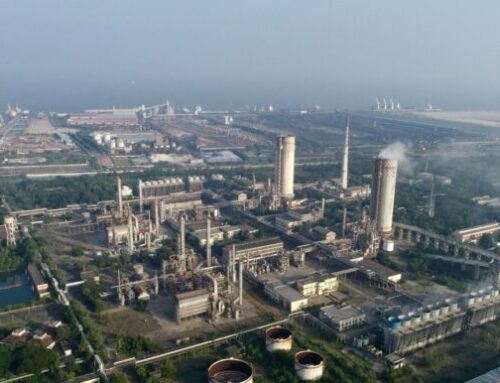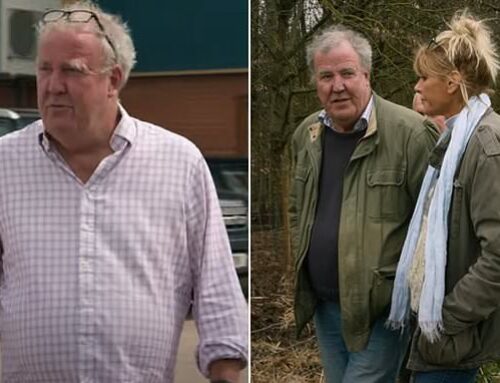Empowering waste pickers with dignified jobs for environmental change
December 31, 2024
- SWaCH, a Pune waste pickers’ cooperative, formalizes work, improves conditions, offers training, and ensures fair wages, transitioning members to safer, dignified roles in waste management.
- Waste segregation and recycling reduce greenhouse gas emissions by diverting waste from landfills which mitigates methane emissions and cutting raw material extraction.
- SWaCH highlights waste collection as “green” work, offering a just transition model where waste pickers gain dignity and agency while tackling environmental and social challenges.
Three decades ago, Rajabai Sawant used to pick and sort waste on the streets of Pune with a gunny bag on her back. The plastic she collected from a public waste site would be sold for some money that saved her children from begging.
Today, dressed in a dark green jacket monogrammed with the letters “SWaCH” over a colourful saree, the 53-year-old is one among an organised group of waste collectors and climate educators who teach residents in urban Pune how to segregate and manage waste. Their small steps are part of a larger effort to help mitigate emissions and protect the environment.
“Even though we were earning money and running our homes by collecting and selling recyclable waste in the past, our job was not valued and we were not respected for the work we did,” Sawant recalls as she pushes a loaded four-wheeled metal cart up a gentle slope. “People called us thieves and restricted our access to some areas, and the police frequently harassed us.”

A member of SWaCH (Solid Waste Collection and Handling) for the past 22 years, Sawant now is at the forefront of a mission that ensures segregated collection of waste in western Maharashtra. With a bright smile and strong demeanour, she collects segregated waste from 150 households every day. “Rajabai is very strict. She warns that she will not take the waste if it is not segregated, which generally makes people follow the system,” says Kumar, a resident of Ratan Park in Pashan, who goes by one name.
SWaCH Pune was set up as an autonomous cooperative to enable waste pickers to transition into formal waste management roles. It was born out of Kagad Kach Patra Kashtakari Panchayat (KKPKP), which is a trade union of waste pickers in Pune established to advocate for their rights and improve their working conditions.
Since KKPKP was not in favour of contractor-run private models, they envisioned a model that enhances waste collectors’ work instead of displacing them, through countless conversations with waste collectors and citizen groups across the world. “Contractor models typically end up hiring males and displacing the people who traditionally did the work. We strongly felt that a person who has been doing the work for so long brings in the knowledge, experience, and intelligence to handle the material in a particular way, and should be the first claimant of that work, and she should then also have the first right of refusal. We wanted a PPPP – a pro-poor private public partnership,” shares Lakshmi Narayan, one of the co-founders of SWaCH and KKPKP. This was the inception of SWaCH in 2005. It was registered in 2008 for door-to-door collection of waste in partnership with Pune city’s urban local body, the Pune Municipal Corporation (PMC).
Suman More, a waste collector, remembers the long hours at the dump sites, fighting with and suffering bites from rodents, pigs, and dogs, and having to expose their entire bodies to sharp objects and various infections. They were feeding themselves and their families at the cost of their health. More has been the Chairperson of SWaCH Cooperative for about a decade and is an office bearer of KKPKP.
Rehabilitating them, by teaching them a new skill like embroidery, and taking them away from their work of waste collection, segregation and sale was not the long-term solution, says Narayan. “Besides, the waste sector generates a large number of jobs not just in Pune, but across the world, and the waste collectors feed into a multi-billion-dollar industry, which comprises scrap dealers, waste transporters, recyclers, and reprocessors, and then the material goes back into the industry. There is also a whole economy that’s dependent on them.”
Removing emissions through waste management
Through detailed discussions with waste pickers and research by the International Labour Organisation, based on data collected with the waste collectors, the Pune waste pickers’ trade union, KKPKP, realised that they were diverting a significant amount of waste from the landfill.
Segregation at source and recycling material recovered from the waste was contributing to climate change mitigation by minimising landfill waste, reducing greenhouse gas (particularly methane) emissions, lowering the demand for scarce raw material and saving taxpayer money by reducing solid waste management costs.
India’s Municipal Solid Waste (Management & Handling) Rules, 2000 mandate that waste be segregated at the source, which is collected from households and processed. The local body is responsible for the collection, storage, segregation, transportation and disposal of all solid waste generated in the city.
In Pune city, the primary source of solid waste is households, markets, commercial establishments, hotels, and restaurants. The Pune Municipal Corporation (PMC) generates the highest waste in Pune district at 2,015 Million Tonnes per Day (MTD), of which dry waste is 783 MTD – 38.8%, and wet waste is 699 MTD – 34.7%.
Of this, SWaCH sorts and recycles 227.1 tonnes per day (82,891.5 tonnes per annum) of waste which is thus diverted away from landfills. In doing so, they estimate saving the city Rs. 120 crores that would have been needed for processing, transportation and human resources.
An analysis by the United Nations Environment Programme (UNEP) and the International Solid Waste Association found that the waste sector, which is the third largest source of anthropogenic methane emissions, can potentially aid a 20% reduction in global GHG emissions.
As of 2018, SWaCH calculated that their work had reduced greenhouse gas (GHG) emissions by 1,84,609 MTCO2E.
‘Green’ work, but not decent work
In the recently concluded plastic pollution negotiations in Busan, the Chair’s text highlighted that countries shall take measures to “promote a just transition for plastic waste management workers, especially waste pickers and other informal workers”. A just transition in waste management prioritises sustainable practices such as recycling of waste and secures dignified, fair jobs for waste pickers.
Narayan says the SWaCH model helped transition the work of trash collectors from the informal sector, where they spent their whole day at public bins and roadsides in tattered clothes, to a more formalised setup where they began wearing a uniform, and started speaking directly to residents. The women of SWaCH went through several trainings and workshops on a gamut of subjects from their role in environment protection and climate change, to mining, Constitutional rights, gender equality, and soft skills such as speaking with customers. With this guidance, they could confidently discuss the need for segregation and their role in the waste management system.
“We did not know how to talk to people, since we had never been included in society. We wouldn’t have dared to talk in front of even two people, but now, we can fearlessly articulate our demands and thoughts with conviction in front of an audience of 500,” says Rani Shivsharan, a waste picker and board member of SWaCH.
Today, SWaCH has over 3,850 self-reliant waste picker members, who provide daily front end doorstep waste collection services to over 40 lakh citizens of Pune. Each member is a shareholder, there are 180 elected waste picker representatives, and 14 waste picker board directors. At a user fee of Rs. 85 per household (or Rs. 65 per slum household and Rs. 170 per shop), which is paid by the property directly to the waste collector, and by selling the recyclables they sort from the collected waste, a SWaCH member earns at least about Rs. 16,000 per month.
“As a part of SWaCH, we were able to get ID cards, and benefits such as health and education funds,” says Vidya Naiknaware, a SWaCH member since 2005, who is also on their Board, adding passionately, “Several waste collectors across the state do not have these facilities; it is time to ensure they also get these benefits. They should be empowered, like we were because of SWaCH, and they should also be given first priority to work in the waste sector.”

Despite the convenience, there are still some residents who refuse to pay for door-to-door waste collection services and throw their waste on the street or into the river.
“It is impossible for us to collect such waste. In fact, even if they don’t want to pay us the collection fees, we don’t mind collecting their waste (from their homes). We can at least sort it and send it for recycling,” says Sawant.
Hamsa Iyer, a solid waste management expert and General Manager at ProEarth Ecosystems, identifies three components that are broadly missing in today’s waste management system, in the context of just transitions for waste collectors. First is the access to clean, sorted waste. “Your entire just transition story is sitting on the premise that conscious citizens will do what is right. However, people just don’t believe in cleaning their recyclables.” The second piece is understanding that waste workers also need social cover, such as health insurance, which the present market is unwilling to account for. “The third problem is that we are not putting enough money into awareness that results in action,” she says.
Sandip Kadam, the Head of the Solid Waste Management department for the Pune Municipal Corporation, recognises that some behaviour change is still expected among residents of Pune, such as paying the collection fees on time.
“We have argued that waste collection itself is green work, but it’s not necessarily decent work. And there has to be a way to make it decent. The reason SWaCH continues to work now as an efficient just transition model is because it’s filling a very critical urban need for citizens and the municipality of doorstep daily collection. But much more importantly, from the waste picker’s perspective, it gives her agency and autonomy, and an opportunity to transit gradually because they occupied the space first,” Narayan explains.
The SWaCH model is constantly at threat from private contractors who come with deep pockets and can influence and sway policy and policy makers either way. After a long delay, the PMC finally renewed SWaCH’s contract for a five-year term this year. “We had to repeatedly nudge them, we conducted protests with close to 1,000 women, and the contract was done finally,” shares More. “Despite all the environmental and climate change benefits due to our services, why do we have to fight for a contract? Why doesn’t the PMC make this a permanent part of the waste management system?” demands Naiknaware of SWaCH.
Kadam does not believe a permanent contract is conducive. “If there is competition, services will improve,” he says.
Finally, Sawant goes a step further, to the root of the problem, “The government and companies should think about stopping the use of materials that cannot be recycled because there is nowhere for it to go once it is discarded. This is the waste that lands up on the streets and makes the city dirty.” Meanwhile, Shivsharan is raring to go, “We were always on the fringes of society. Being part of the cooperative showed us that we are also human, and citizens of the country. Besides, struggles are a part of our life, we will face the struggles, we will continue fighting Constitutionally, and get our rights.”
Read more: Ambikapur’s women-led waste management system also generates revenue for the city
Marginalised women become leaders
SWaCH has over 70% women waste collectors, a conscious decision while forming the cooperative. Many of these women migrated to Pune in 1972 and after, as parts of Maharashtra, where they came from, faced severe drought. In the city, waste collection was the only work available for some women and their families because they belonged to a certain caste. Owing to their caste, they were not allowed into certain houses so they couldn’t even do domestic work, shares Narayan, adding, “This is the one job that was left to them when they had nothing – neither capital, nor education, nor tools of trade. So they decided to collect waste and make a living off it.”
Sawant also was one of the women who migrated to Pune from Latur in eastern Maharashtra, with her husband and children. Her parents, who had moved before her as a result of drought were forced to collect and sell scraps from the roadside. With no work or land, Sawant too began collecting plastic from a public dumpsite to sell for money in a desperate attempt to save her children from beggary. Since that difficult beginning, Sawant has used her leadership skills and her efforts in uplifting other women like her, for which she was made a Board member of SWaCH. “Today, we can sit like equals on a chair only because of SWaCH,” she says, warmly.
“There was a time when the waste was dirty, unsegregated, mixed, and they had to segregate it with their bare hands. Only a poor Dalit woman was doing it then. But historically, across sectors, the moment there is little modernisation, technical improvement, or even a little reduction in the drudgery of work, men take over the work that women traditionally did. Middle and upper castes start doing the work that the poor or certain lower castes were doing,” says Narayan. Shivsharan emphasises that now, when conditions of work have improved, there is formal payment, and some segregation of waste, they don’t want others to take over their work.

Waste pickers perceive this transition into SWaCH as a form of upward mobility, security, tenure, and an improvement in their conditions of work, which worked because they were a part of the discussion and negotiation for what the new work could look like. “If they perceive that this work therefore needs to be protected for them and others should not enter the space, we strongly agree. SWaCH is designed to protect the rights of the original people doing the work and allowing entrants from other castes and gender, i.e. males, to enter only once there is the first right of refusal exercised by a traditional, what we call erstwhile, waste picker,” she adds.
This story was produced as part of the Just Transition Mentorship and Story Grant Opportunity by the Thomson Reuters Foundation.
Banner image: Dressed in a dark green jacket monogrammed with the letters “SWaCH” over a colorful saree, Rajabai Sawant, 53, is one among a group of empowered waste collectors and climate educators who teach residents in urban Pune how to segregate and manage waste and in turn help mitigate climate change and protect the environment. Image by Shatakshi Gawade.
Search
RECENT PRESS RELEASES
Related Post




